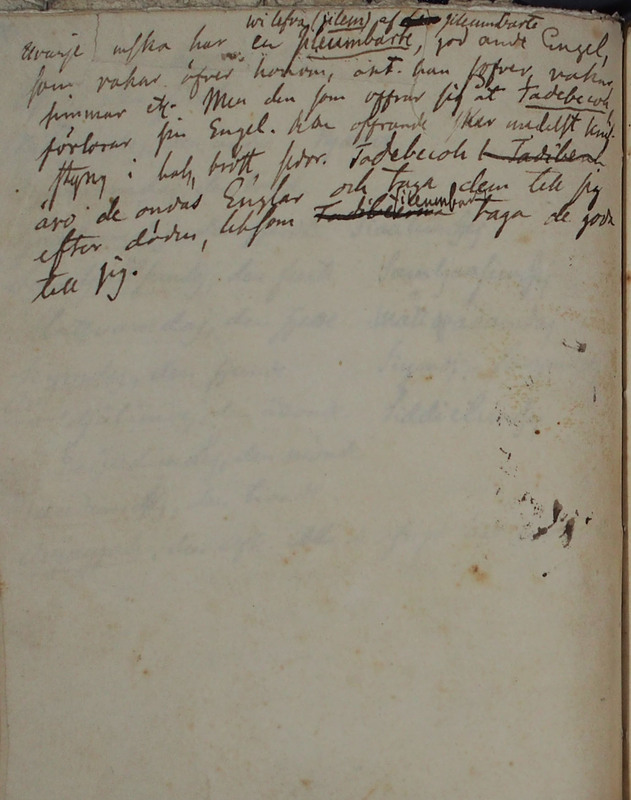Strödda ethnographiska anteckningar. 023
Title
Strödda ethnographiska anteckningar. 023
Description
| Hvarje mska[menniska] har en
Jileumbartje
(wi lefva (jilem) af jileumbarte), god ande Engel,TN Илевямбэртя or Илебяʹ пэртя denotes both a spirit taking care of wild reindeer and a life-giver (žiznedatel’) or life guardian, as Castrén notes. The twofold meaning goes back to the two meanings of TN илебць ʻlife, wild reindeer’, and пэртя ʻmaker, actor, guardian’. (Chomič 1976: 22–23; Lar 1998: 20–21).
som vakar öfver honom, ant[ingen]. han sofver, vakar, simmar etc. Men den som offrar sig åt Tadebecoh
тадебцo ʻshaman’s helping spirit’ (Lar 1998: 36–39; Lehtisalo 1924).
förlorar sin Engel. Detta offrande sker medelst knifs- styng i hals, bröst, sidor. Tadebecoh äro de andas Englar och taga dem till sig efter döden, liksom Jileumbarte taga de goda till sig. |
Everyone has a Jileumbartje (we live (jilem) from jileumbarte), a good spirit, an Angel, who watches over him, whether he sleeps, is awake, or swims, etc. But anyone who makes sacrifices to Tadebecoh loses his Angel. The sacrifice is represented through stabbing oneself in the neck, breast, and sides. Tadebecoh are the angels of the soul and they take them [souls] with them after death, as the Jileumbarte take the good ones to themselves.
|

